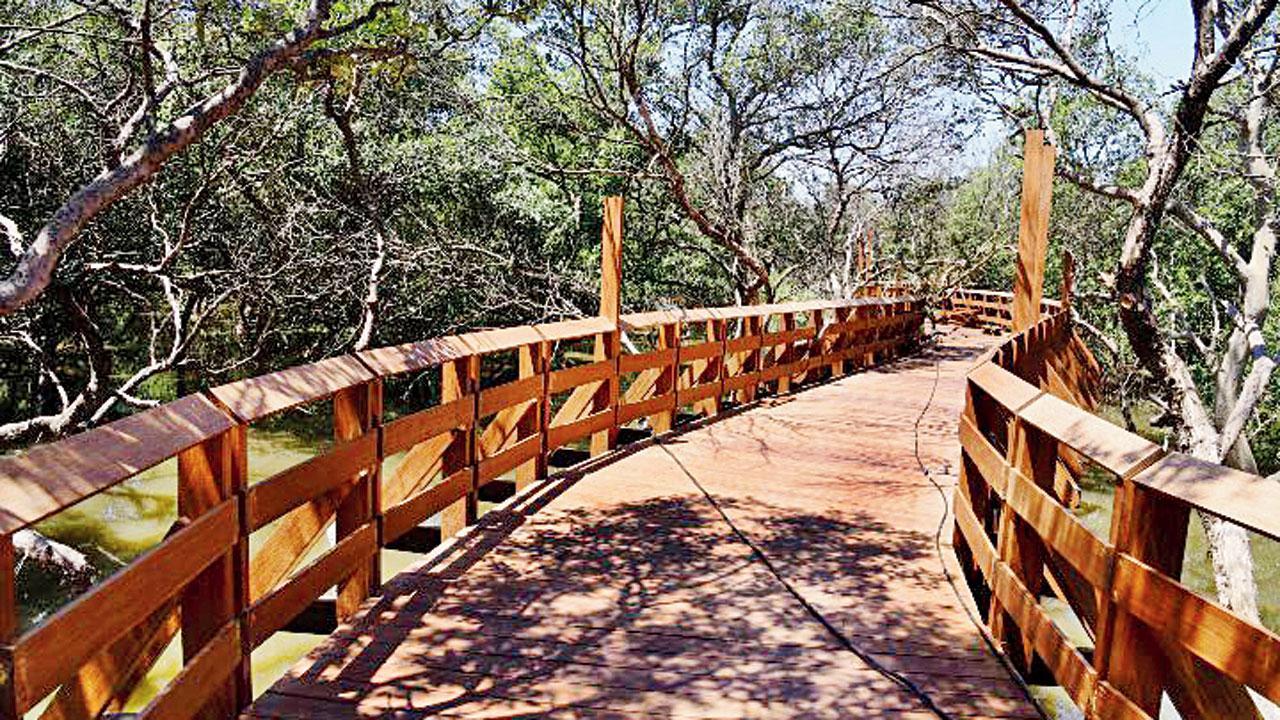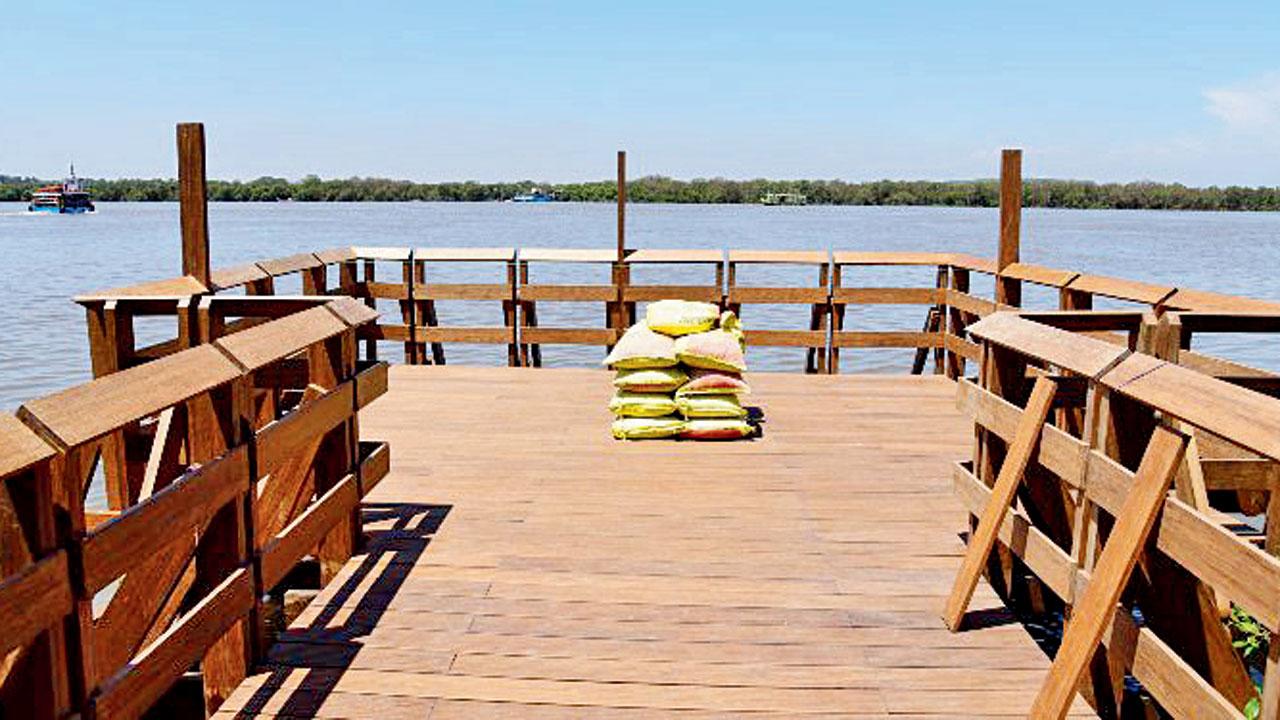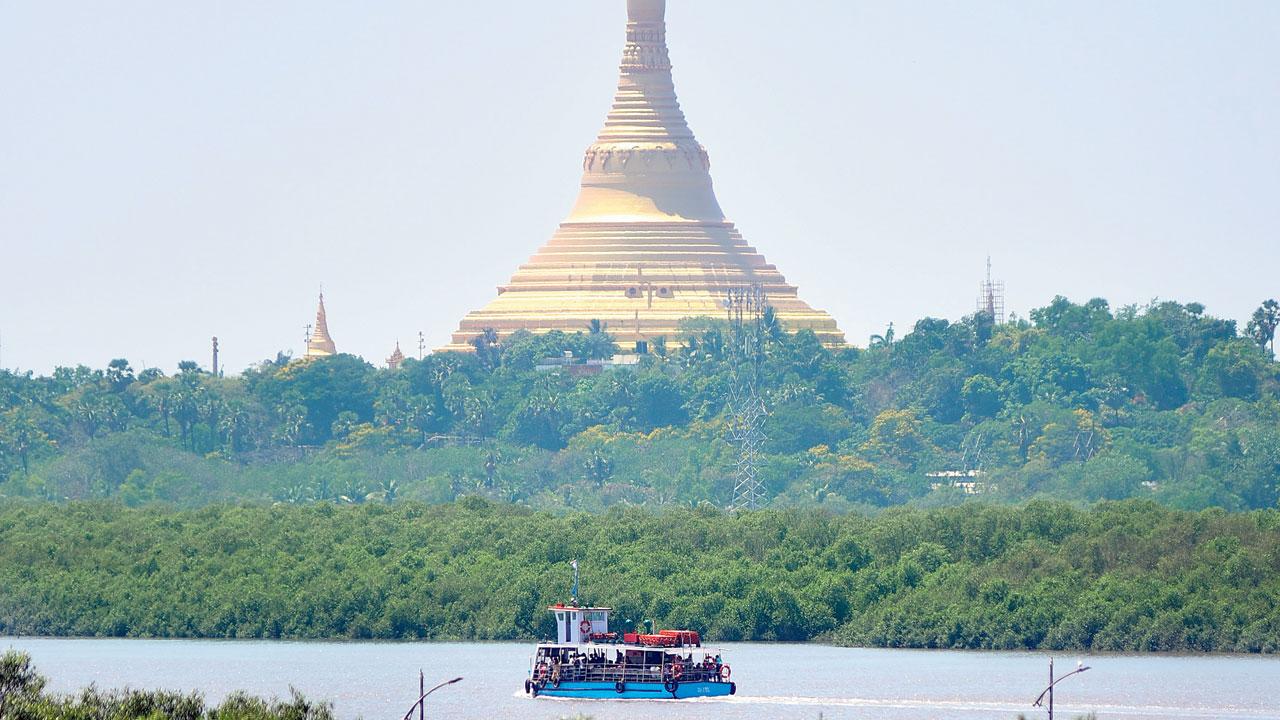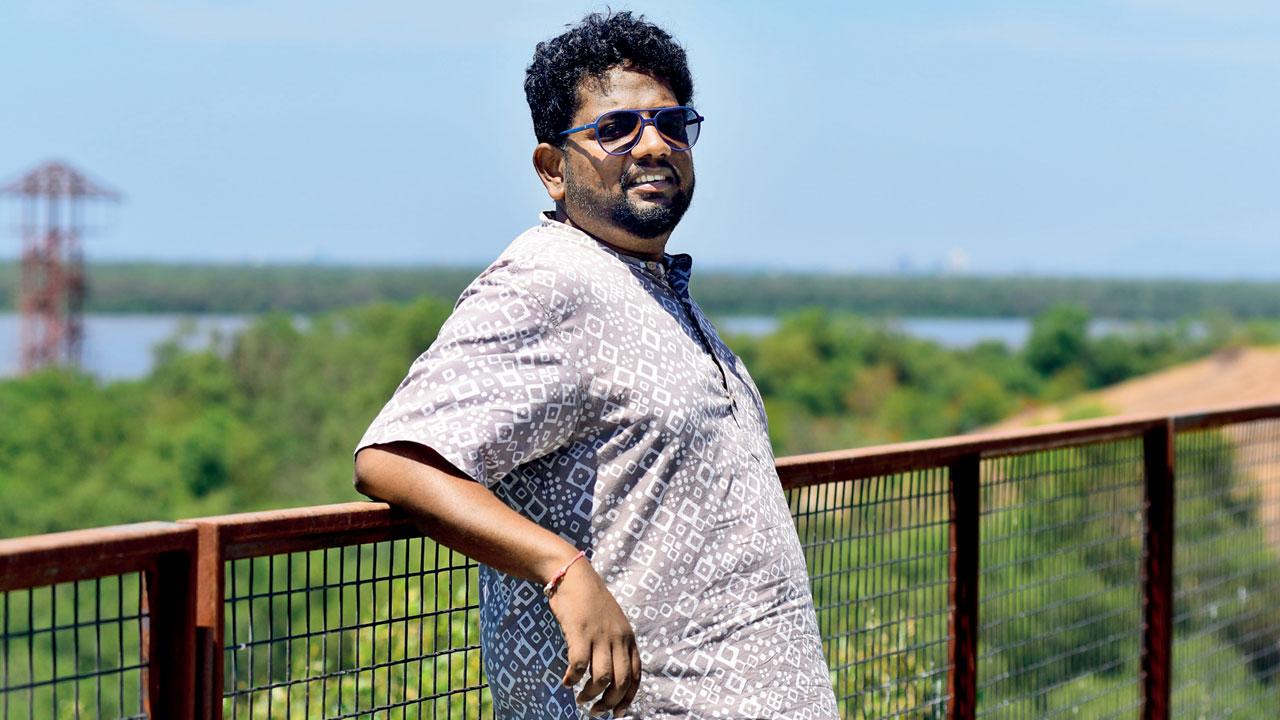Sunday mid-day gets an exclusive walk through the future-forward and first-of-its-kind mangrove park in Gorai

Duck to manoeuvre around branches on the boardwalk at Gorai Mangrove Park
It is the first day of spring as I make my way to Gorai jetty, right next to India’s first ever mangrove park, which is slated to open to the public in approximately two months. Head architect of the project, Devendra Bawdane, meets me at the site office, and we begin our hike. Immediately, the dense patch of mangrove marina offers respite from the blinding March sun.
ADVERTISEMENT
We set off on the wooden boardwalk that winds right through the mangroves, with pause-points along the way to rest and take in the sights, and ending at a watch-tower that offers a bird’s eye view of Gorai creek and the city beyond it. “Maharashtra is the only state with a dedicated Mangrove Cell,” Bawdane notes with pride.
The high tide has created a shallow pool of water under the boardwalk, and clusters of tiny fiddler crabs cling to tree trunks. When the tide recedes, the crabs will scurry into the mud flats. “This is the kind of biodiversity we want visitors to see,” says Bawdane. “Without the boardwalk, people wouldn’t dare venture into the marsh-lands.” Mumbai has over 50 sq km of mangroves, the highest for any megacity in the world. Mangroves absorb humidity from the atmosphere, and trap four times the carbon dioxide that regular trees do. These green soldiers resolutely guard the city against storms and floods.
Also Read: Mumbai: City’s first salon run by transgender persons opens at Prabhadevi

Multiple pause points on the boardwalk allow you to take in the sights. Pics/Nimesh Dave
“Mangroves have always been an important resource for locals, but we only realised their value in 2005, when Mumbai was submerged [26/7],” says Bawdane. “Unfortunately, people don’t know much about them. They dump garbage and wastewater into the area because they think it is a wasteland, infested with insects. Some even believe that mangroves breed mosquitoes and spread illness. We wanted to change this preconception,” he says about the collection of shrubs that grow in tropical tidal swamps, with tangled roots that sprawl above the ground.
The boardwalk is made entirely out of wood and other eco-friendly materials. “We had permission to trim the branches, but decided not to,” Bawdane asserts. “This 800 metre-long boardwalk was made without cutting a single tree.” The branches grow unrestrained, extending overhead, creating a natural canopy. We find ourselves ducking to manoeuvre around them. I don’t mind, though—it’s an exercise in mindfulness. There’s something that looks like a combination of an ant-hill and bee-hive on a branch above me, which is, I’m told, a pagoda ant nest.
At the first pause-point, the boardwalk extends into the creek, like a pier. The water stretches out before me, the afternoon sun making its surface glimmer. In the distance, a boat ferries a horde of excited passengers to Essel World. The Global Vipassana Pagoda stands sentinel to my left. Bulbuls and starlings provide a soundtrack to this stunning view. Unsurprisingly, I take many pictures.

A view of the Global Vipassana Pagoda
The second arm of the boardwalk leads to the tall, red watch-tower that looms in the distance. Bawdane tells me that people will soon be able to cut through the creek on a kayak and reach the upcoming mangrove park in Dahisar.
Another pause-point faces into the mangroves; its future plans include seating for an outdoor classroom. Members of the local communities will be enlisted as guides and park rangers. There will be plaques along the boardwalk, bearing information about the flora and fauna. The steps to the tower are still under construction, but we look forward to climbing them soon.
A gem nestled within the park is the Nature Interpretation Centre. This mangrove museum is an open structure with live exhibits right outside. A library and conference hall are planned on the first floor to host activities and workshops for children on weekends. On the second level, a more traditional museum will hold information about mangroves and waste-management, as well as an audio-visual room. The building will be crowned by a cafeteria on the terrace.

Devendra Bawdane, head architect
As a former lecturer at the Raheja College of Architecture, Bawdane understands the importance of a holistic, hands-on learning experience. Examples of sustainability and accessibility grace every element of the project—90 per cent of the energy in the park will be generated from solar panels. On week ends, the un-utilised energy will go back to the grid to help power the city. Gentle ramps in place of staircases make every part of the park accessible for wheelchair-users and the elderly, a refreshing foresight.
Bawdane and his team’s clear objective is to make visitors fall in love with mangroves and nurture a sense of connection with nature. “Things won’t transform overnight,” he says, “but if there is even a five per cent change, it will have been worth it. This is just the beginning of reversing the degradation we have caused to mangroves. It is a first step.”
 Subscribe today by clicking the link and stay updated with the latest news!" Click here!
Subscribe today by clicking the link and stay updated with the latest news!" Click here!







